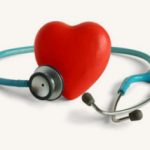The medical community is still not sure what causes depression
Experts say depression is caused by a combination of factors, such as the person’s genes, their biochemical environment, their personal experience, and psychological factors. MRI (magnetic resonance imaging) has shown that the brain of a person with depression looks different, compared to the brain of a person who has never had depression.

The signs and symptoms of depression
Depression is not uniform. Signs and symptoms may be experienced by some sufferers and not by others. How severe the symptoms are, and how long they last depend on the individual person and his illness.
Below is a list of the most common symptoms:
- A constant feeling of sadness, anxiety, and emptiness.
- A general feeling of pessimism sets in (the glass is always half empty.)
- The person feels hopeless.
- Individuals can feel restless.
- The sufferer may experience irritability.
- Patients may lose interest in activities or hobbies they once enjoyed.
- He/she may lose interest in sex.
- Levels of energy feel lower, fatigue sets in.
- Many people with a depressive illness find it hard to concentrate, remember details, and make decisions.
- Sleep patterns are disturbed – the person may sleep too little or too much.
- Eating habits may change – he/she may either eat too much or have no appetite.
- Suicidal thoughts may occur – some may act on those thoughts.
The sufferer may complain more about aches and pains, headaches, cramps, or digestive problems. These problems do not get better with treatment.
The majority of health authorities and experts throughout the world believe that the benefits of taking antidepressants for treating major depression and anxiety disorder among children and adolescents outweigh the risks.



